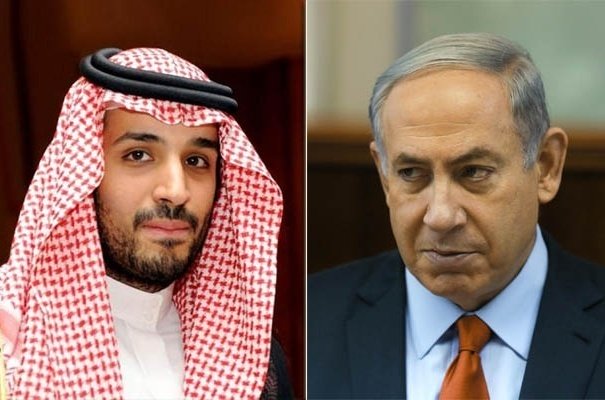Analysis
Washington, Tel Aviv support Saudi offensive against Iran
Riyadh has intensified pressure against Tehran and the Lebanese Shia movement Hezbollah. Meanwhile, an Israeli journalist disclosed a document proving unity of purpose between Israel and Saudi Arabia.

After getting Donald Trump’s approval for his wave of arrests among allegedly corrupt princes, ministers and tycoons, the Saudi Crown Prince Mohammed bin Salman also received the full support of the U.S. for his accusations leveled at Iran for having provided the ballistic missile fired by Yemen that flew over Riyadh on Nov. 4. According to U.S. ambassador to the U.N. Nikki Haley, the missile fired was a Qiam Iranian-made model, “a type of weapon not present in Yemen before the civil war.”
These are words that give a further boost to Riyadh’s offensive against the Shiite Hezbollah movement, which culminated in the forced resignation of Lebanese Prime Minister Saad Hariri and in the full-on attack on Tehran launched by Mohammed bin Salman himself during a telephone conversation with British Foreign Minister Boris Johnson.
“The role of the Iranian regime in supplying the (Yemeni) Houthi rebels with missiles represents an armed attack by Tehran and can be considered an act of war,” the powerful royal scion said, obtaining Johnson’s solidarity in the matter.
There was an immediate reply from Tehran, which, through Foreign Minister Mohammad Javad Zarif, described the Saudi claims as “false and dangerous.” In Damascus, where he was on an official visit, Ali Akbar Velayati, adviser to the Ayatollah and Iran’s Supreme Leader, Ali Khamenei, stressed that his country is ready to defend itself. Velayati and Syrian President Bashar Assad have both said they are convinced that the escalation of tensions in the region is caused by the defeat of the terrorist groups in Syria, the same terrorist groups who on Tuesday struck back at Damascus. A rain of rockets and mortar shells fired by jihadist militants hit a district of the city, including buildings not far from the Russian embassy, causing at least five deaths.
Israel is not standing by either. Even though the press and analysts are warning against being dragged along by the Saudi frenzy into going to war directly against Iran, the Netanyahu government is coming closer to the position of Riyadh, with which Tel Aviv has no official relations.
This is proved by a telegram from the Israeli Foreign Ministry to all embassies, revealed Monday night on the Channel 10 Israeli TV station by Barak Ravid, one of the most well-informed Israeli journalists. The ambassadors, Ravid explained, were asked to convey to the leaders of the countries they operate in a message of open support for Saudi Arabia and against the presence of Hezbollah in the current and future Lebanese governments.
Meanwhile, the enormous purge set in motion by Mohammed bin Salman, which has already featured dozens of arrests, is again showing the twists and turns of a pulp thriller. Prince Abdul Aziz bin Fahad, the son of the penultimate ruler of the kingdom, Fahd bin Abdul Aziz al Saud, was killed by security forces in a firefight while fighting against his arrest. This has been reported in the Daily Mail, and the news, not officially confirmed, comes 24 hours after another member of the royal family, Mansour bin Muqrin, died in a plane crash which few believe was an accident. The Arab media, and even the Israeli, claim that the aircraft carrying the prince and seven other officials must have been shot down by a military jet to prevent their escape.
The judicial authorities have also frozen more than 1,200 bank accounts belonging to “their excellencies.” The Yemeni President in exile in Riyadh, Abd Rabbu Mansour Hadi, is also a de facto prisoner, together with his sons and some military leaders, which the Saudis are stopping from returning to Yemen. The reason is the strained relations that Hadi has with the Emirates, the steadfast allies of Saudi Arabia.
In other parts of the region, there are concerns about the future. Lebanon fears being thrust into a new civil war under the impact of the Saudi pressure against Hezbollah that has already forced Prime Minister Hariri to resign. And Gazans are anxiously awaiting the return of Palestinian President Mahmoud Abbas, who went to fulfill an urgent “invitation” by Saudi King Salman, as Riyadh has shown disappointment at the reconciliation between Abbas and the Hamas Islamist movement, sponsored by Qatar and Turkey, rivals to the Saudis, and which has recently moved closer to Iran.
Originally published at https://ilmanifesto.it/iran-washington-e-tel-aviv-appoggiano-loffensiva-saudita/ on 2017-11-08
